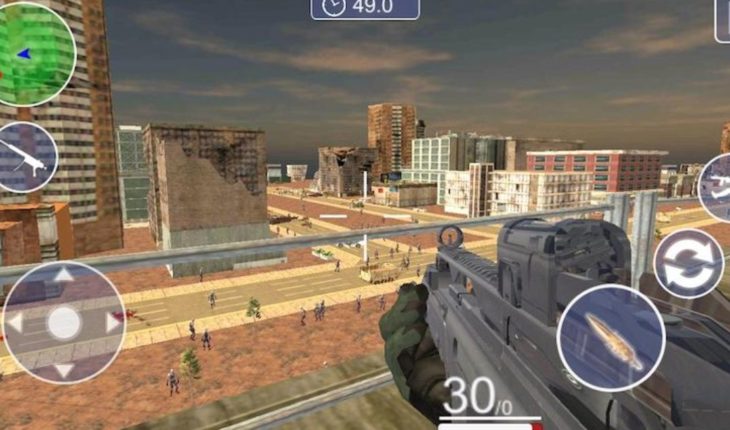this week the website Wired published an investigation which brought to light the serious problems of classification that have Google in their Play, Android Store. The portal discovered dozens of free games with graphic violence classified as suitable for users over the age of three. Applications like Mad War Zombies, Drive Die Repeat – Zombie Game, Guns, or Virtual Girl US Army Women Mom Family Games, which revolve around the concept of shoot (a zombie, thieves or fictitious figures with realistic weapons) were available in the shop inside rated for children. Many of them, before the denunciation of the portal, were removed from the Play Store and published again with another name or a different (but not necessarily proper) classification. The case of Army Women Mom is particularly striking, since it appears with “Everyone” ranking (for all users) and although during the first levels, the player controls a mother who should cook and accommodate the family home, the game changes gender abruptly and becomes an experience of shooting that should stop thieves from Bank.
Army Women Mom | Image: Google in Europe (where Wired carried out research) the classification depends on the PEGI body, while in the United States, that task falls into the hands of the ESRB. However, given the thousands of applications that are launched daily in mobile devices (in particular in Android, which does not have any restriction), both agencies used a questionnaire created and managed by the international coalition of Classification by age (IARC for its acronym in English). The problem is that the questionnaire is filled out by the same developers and as Wired explains is “100 percent based on the honor” because it is not controlled by anyone. Lie in the questionnaire involves receiving a lower rating and expand the potential number of users. This does not mean that the method of the IARC is not effective, since it is the same used by Nintendo, Apple and Microsoft for their stores. The difference is that those companies do a curatorship of the content, classifying it properly or rejecting the request. Drive Die Repeat – Zombie Game, for example, a game in which the user runs and shoots zombies in a festival of blood, had a rating for over seven years in Play Store. After the denunciation of Wired was modified as suitable for over twelve years, the same rating that took in the iOS store since its launch. False classifications not only apply to applications with explicit violence, but also those that include machines slots or virtual poker, such as Slingo Shuffle – Bingo & Slots, classified as “Everyone” in the Android store and forbidden for children under twelve years in the iOS store. Others a much more horrifying as Baby Panda Dental Care (which you can see image below) were eliminated from the store after overcoming ten thousand downloads.
Baby Panda Dental Care | Image: Wired by nature more open, since its launch the Play Store has been fertile ground for “controversial” applications, either by breaking copyright (as countless clones of Nintendo Games or emulators), invade the privacy of the users or install virus directly. Google has no real motivation to modify its handling of the Play Store, considering that it stays with thirty percent of all transactions in applications offered in the store, transactions amounting to more than 21 thousand according to Sensor Tower millions of dollars only in 2018. For now all we can do is monitor what applications are using the kids and denounce those that include inappropriate content. In this note:





